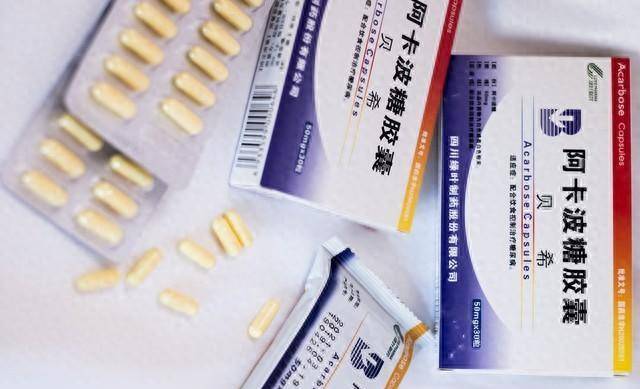Imagine, you have a sharp kitchen knife that has been your reliable assistant in cooking for years. But as time passes, you begin to notice that even the most familiar ingredients are not as easily cut as before. You wonder, is the knife getting dull, or are the ingredients getting harder? This metaphor can be used to explain some people’s struggles when using acarbose to treat glucose metabolism disorders (commonly known as diabetes) for many years. They find that even with continued use of the same medication, the effectiveness of blood sugar control gradually diminishes. What is the reason behind this? Is the medication no longer as effective, or has there been a change in the body’s condition?
Working principle of Acarbose
Acarbose acts like a shrewd “sugar gatekeeper” in the body’s digestive system. When complex sugars in food pass through the digestive tract, acarbose intervenes to prevent these sugars from breaking down into simple sugars prematurely. This mechanism is similar to a fine filter, preventing all sugars from entering the bloodstream at once, thus avoiding a rapid rise in blood sugar levels. This is crucial for controlling blood sugar levels in patients with glucose metabolism disorders (commonly known as diabetes). However, this blockade is not absolute, and some sugars will still enter the bloodstream through natural physiological processes to meet the body’s energy needs.
Possible effects of long-term use of Acarbose
During the long-term use of acarbose, the body may undergo a series of adaptive changes. For example, the digestive system’s ability to process food sugars may gradually increase, or the composition of intestinal flora may change, both of which could affect the medication’s effectiveness. Additionally, due to acarbose’s mechanism of action, long-term use may lead to some digestive side effects, such as bloating or discomfort. These side effects sometimes mislead patients to reduce their medication, which in turn affects the medication’s blood sugar control effectiveness. Importantly, over time, the body’s response to any medication may change, which is a complex physiological process involving various internal regulatory mechanisms.
Why is the blood sugar control effectiveness decreasing?
There could be several reasons for the decrease in blood sugar control effectiveness during acarbose therapy. Firstly, the onset of systemic arterial hypertension (high blood pressure) or other complications may indirectly affect blood sugar control. Secondly, as time progresses, changes in the patient’s lifestyle, such as alterations in dietary habits or reduced physical activity, may impact blood sugar levels. Furthermore, with aging, the body’s sensitivity to medication may decrease, resulting in the diminishing effect of the original medication dosage. Additionally, the use of other medications may also interfere with the effectiveness of acarbose; for instance, certain drugs used to treat other health issues may affect blood sugar levels.
Expert recommendations and alternative strategies
Faced with the diminishing effects of acarbose, experts typically recommend a comprehensive individual assessment. This includes reassessment of the patient’s overall health status, lifestyle, dietary habits, and other medications being used. Experts may adjust medication dosages or consider using other types of hypoglycemic agents. Moreover, emphasizing lifestyle adjustments is equally important, such as regular physical activity and healthy dietary habits, which are key factors in maintaining good blood sugar control. In some cases, experts may also recommend the use of blood sugar monitoring devices to track and manage blood sugar levels more accurately. It is worth noting that each patient’s situation is unique, so treatment plans should be tailored according to individual circumstances.


